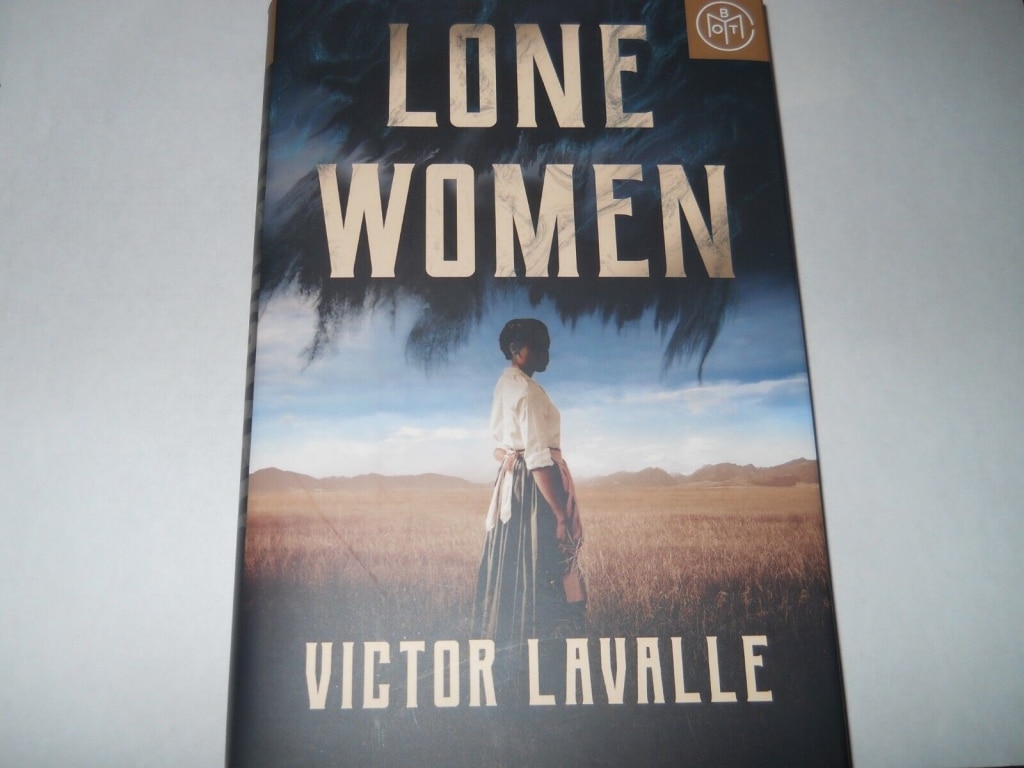Captivating and compelling, Victor Lavalle’s “Lone Women” is extraordinary — the latest genre gem from a writer at the top of his game.
In Lone Women, Adelaide Henry escapes from California to Montana, where she expects to occupy a homestead. She carries nothing but a steamer trunk, which is also the reason for her escape: it contains a monster that killed not only her parents but members of her community in California.
When she arrives in Montana, she befriends Matthew, a man who regularly invites her to go horse riding with him. He shows his true colors, however, when he steals the key to her trunk, intending to take whatever is within. Instead, the monster escapes and severely injures him.
Adelaide’s secret is exposed; the only thing worse is that the monster itself is free from confinement. It is not just Adelaide that might be destroyed, but the state of Montana and possibly the rest of the world.
I love the mystery of the monster’s identity.
Even when she is revealed to be a dragon, I find it hard to challenge the assumption that she is a human. After all, she has a human name, Elizabeth, and came from human parents. While she can’t speak English, she can understand it. In fact, the chapters written from her point of view indicate that she can communicate in English; she simply chooses not to.
Yet, as skeptical as I am about Elizabeth being a dragon, it agrees with what I know about her. She has wings and scales, feeding on horses and humans.
There is tension between Elizabeth’s human characteristics and those that portray her as a monster. As a result, I’m not entirely sure who or what she is, and maybe the point is precisely that it doesn’t matter. All Adelaide needs to know is that Elizabeth is her sister, a living being who deserves affection regardless of her appearance.
In the same way, Sam, the transgender son of Adelaide’s friend Grace, should not be ostracised for appearing differently from other boys. As Grace’s son, he deserves the love she pours on him.
Lone Women establishes an atmosphere of distrust as soon as Adelaide learns that Montana is not nearly as ideal as it is advertised.
“In summer, hot winds that wither vegetation are but little known,” Adelaide quotes from a pamphlet, to which her wagon driver replies, “That stuff you’re saying is pure hokum.”
Sure enough, Adelaide arrives at a run-down homestead that makes her realize the stupidity of her assumption that she can survive by herself. Her poor living conditions are the first sign that Montana is a place of danger and deception. Even before she arrives, a family of robbers, consisting of a mother and four boys, tricks her into thinking that the boys are blind.
Soon after, in Montana, Matthew makes her believe he is her friend, betraying her when she lets her guard down.
I also find it interesting that whenever a guest knocks on Adelaide’s door, she often makes a wrong guess as to who it is; this further reinforces the mood of uncertainty and unpredictability. As the reader, I feel just as insecure as Adelaide, which allows me to empathize with the overwhelming disorientation that comes from entering an unfamiliar, hostile environment without anyone who can be trusted.
Like the rest of Victor LaValle’s works, Lone Women is extremely accessible.
LaValle makes use of short, concise sentences to tell the story in a powerfully simple way. Compared to The Changeling, I think the characters in Lone Women are a bit more compelling. Sam, in particular, is meticulously illustrated in all his childish exuberance; I couldn’t resist reading more to learn about him.

















Follow Us!